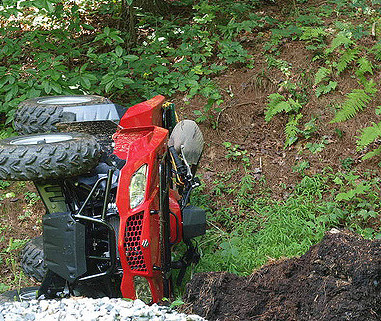By Doyice Cotten
 This author has frequently written about the duration of liability waivers. In a three-part series in 2017, posts addressed a Virgin Islands waiver written intending a one-year duration where the injury occurred after the one-year period – the court ruled it to be unenforceable; another waiver case involved a waiver which did not specify a duration and the Pennsylvania court ruled such a waiver unenforceable; and a third waiver case examined a waiver which did not state a duration – the Massachusetts court held the duration of a contract does not extend forever but only for a reasonable time (which is up to the court to determine).
This author has frequently written about the duration of liability waivers. In a three-part series in 2017, posts addressed a Virgin Islands waiver written intending a one-year duration where the injury occurred after the one-year period – the court ruled it to be unenforceable; another waiver case involved a waiver which did not specify a duration and the Pennsylvania court ruled such a waiver unenforceable; and a third waiver case examined a waiver which did not state a duration – the Massachusetts court held the duration of a contract does not extend forever but only for a reasonable time (which is up to the court to determine).
In a recent case (Scott-Moncrief v. Lost Trails, LLC, 2018), a Pennsylvania court looked at another waiver that was executed in October, 2013. The injury occurred while riding an ATV during a visit in June, 2014. The plaintiff claimed the waiver was unenforceable because she did not sign the waiver on the day of the injury. She also claimed that a former maintenance man at the site told her that every visitor had to sign a waiver each and every time they used an ATV.
The court stated that his testimony had little or no bearing on the validity and applicability of the October, 2013, waiver. The court referred to the first paragraph of the waiver which included the following sentence: “this Waiver shall commence on the date first signed and shall remain binding for all time thereafter.”
The court stated
Further, the language of the waiver is clear. In interpreting the language of a contract, courts attempt to ascertain the intent of the parties and give it effect. When a writing is clear and unequivocal, its meaning must be determined by its contents alone…. Here the language of the waiver form is unequivocal in stating the intent that it is binding for all time thereafter. … The word “all” needs no definition; it includes everything, and excludes nothing.
Risk Management Take-away
How difficult is it to include such a statement in a waiver. Any business that has repeat customers needs to include this language or other similar language such as “… on this visit and all subsequent visits.”
Photo Credit: Thanks to Frank Merenda via Flickr.
